What’s the key to a good kip at Balmoral Castle? Thousands of individually coiled springs sandwiched between plump layers of horsehair, merino and alpaca, handcrafted at Glencraft’s mattress factory in Aberdeen.
Formerly the Royal Workshops for the Blind, luxury Aberdeen mattress-maker Glencraft has proved it is fit for a king after having its royal warrant renewed by His Majesty.
It’s a royal nod that cements Glencraft’s business ties with the palace, well into four generations.
And a solid boost for the company’s export ambitions to markets like China and the US, where the cachet of a royal warrant helps opens doors to high-end customers.
Warrants are only granted to people or companies that provide paid-for goods and services to the royal household for at least five years.
King renews royal warrant
But they become void after the death of the grantor, a fate recently dealt to British chocolate brand Cadbury.
“It’s an honour beyond words”, said Donald MacKay, CEO of Glencraft. “This royal warrant reflects our unwavering commitment to quality and to the people we serve.
“To be recognized by His Majesty King Charles III is a moment of immense pride for our team and the city of Aberdeen.”
Glencraft produces mattresses at a range of price points, with its top of the line ‘Heritage’ mattress retailing at £13,399.
The horsehair layered mattress is crafted with a double layered pocket spring design, and includes alpaca and organic wool.
Reports Glencraft mattresses feel like sleeping on a cloud play only a part in the royal attraction.
The eco-conscious king is a fan of sustainable practices and craftsmanship.
Meanwhile, Mr MacKay says every purchase from Glencraft helps change the lives of staff and the local community, while making a positive impact on society.
And all profits from the company’s sales are reinvested into the business to provide more career opportunities.
Colin Middler from Cove has worked for the firm for 42 years and believes he would not be able to find employment anywhere else.
He says the job gives him structure and community.
“I’m the last totally blind person here, but there used to be 20 or 30 of us totally blind at one point,” he said.
“I was 17 when I started here, back then there was about 130 on the staff.”
Glencraft gives ‘purpose in life’
Busy at his workstation lining up materials, Colin says fellow workers are like family.
“It gives you a purpose in life working here,” he explains. “It’s a production line, we’re all doing the bits we’re able to do.
“Because I’m totally blind, trying to get employment outside wouldn’t be too easy.
“I think we play a huge part in the community with what we produce.”
70% of the hours clocked at the Whitemyres Avenue factory are by employees with visual impairment and other disadvantaged circumstances.
It’s a tradition seeded in 1818 when Miss Christian Cruickshank gifted money for an organisation to provide work to unemployed and disadvantaged people in Scotland.
20 years later, as the fund accumulated interest, it enabled the organisation that would become Glencraft to open its doors in 1843.
During the first 60 years, it provided a school and workshops, employing over 300 people.
But keeping the doors open hasn’t been easy.
Glencraft hit the headlines in 2009 when it went into liquidation after Aberdeen City Council pulled a substantial grant due to a funding review.
A campaign, led by former chairman Duncan Skinner who passed away in 2021, and others, to save the charity and introduce a more professional approach secured its future.
Mattress production down 30%
While the economic climate remains challenging, Glencraft’s team is working to build resilience into the business.
It recently renewed its lease at Whitemyres Avenue for the next five years.
However, the company’s most recent accounts show a 30% decrease in mattress production, from 2,192 to 1,546 for the year ending June 2024.
“It’s a really interesting place to work,” says chief executive, Mr MacKay.
“Most businesses, their sole focus is to generate profit for their shareholders. Here that is not our purpose.
“Our core purpose is to provide employment to those who may not otherwise have it but to do that we have to successfully run this business.
“We use very little automation, so we can maximise employment by handcrafting.
“That’s what the top end of the market is looking for, hand side-stitched, layered by hand, hand-tufted, we do all of these things here because that supports employment.”
The Aberdeen company also manufactures custom mattresses for offshore rigs and student accommodation and has just had its contract renewed for the Caledonian Sleeper train.
Meanwhile, it has a range of mattresses, toppers and divans for sale across a range of budgets from its Whitemyres Avenue showroom off the Lang Stracht.
“That helps bulk out our employment so that we can add volume to maximise the number of jobs that we can create,” adds the CEO.
“Focusing on that end of the market alone wouldn’t be enough to cover our costs.
“We have this interesting tension between the top end of the market and the bottom that we are continually trying to balance.”
Growing international business
Mr MacKay says Glencraft’s current focus is on growing its hospitality business.
“As a manufacturer we can change focus and redesign our product to suit a different area of the market, so we have that flexibility,” he said.
“We have also been looking to grow our international business.
“We recognise that the retail market is quite suppressed at the moment and the general state of the economy across the UK will probably leave it that way for a while.”
Glencraft supplies hotels around the UK, including Gleneagles, The Bonham, Fife Arms, The Chester Residence and the five-star Marcliffe in Aberdeen.
It is currently developing trade in growth areas such as St Andrews and Edinburgh.
“It’s been good for us that we’re quite diversified in the terms of the sectors we are exposed to,” said Mr MacKay.
“If we had been exposed purely to the retail market it would have been a very difficult year for us.”
Dignity through work at Glencraft
The charity boss is keenly aware of the legacy he has to protect and says the team works incredibly hard to adapt to the changing economy.
“You feel like you are just a custodian,” he said. “There’s so much history with it you want to make sure it doesn’t go down on your watch.
“When the business shut down for a period in 2009 – I think at the time there was 60-odd employees – it was closed for six months and only one person got alternative employment.
“So it shows the importance of the business to the people we have employed here and that’s a motivation every day.
“We work hard to make sure we continue to be able to provide employment for them. But certainly it’s not easy.”
While there have been peaks and troughs over time, he says the focus at the moment is on making Glencraft self-sustaining.
He said: “We are looking closely at the moment at the structure of the business, to make sure we are in good shape to survive, not just this year but many years into the future.”
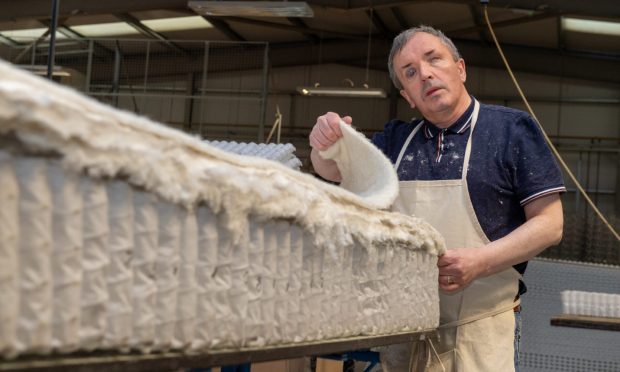
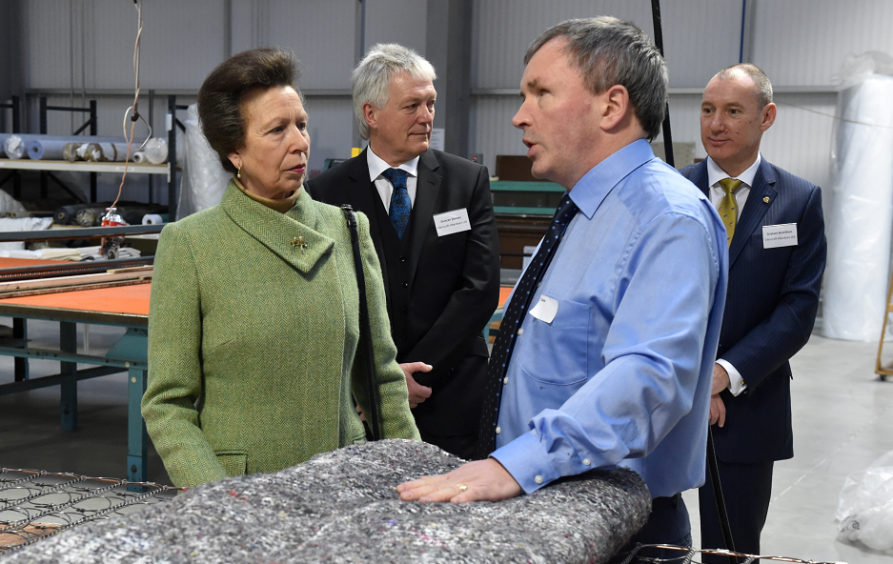
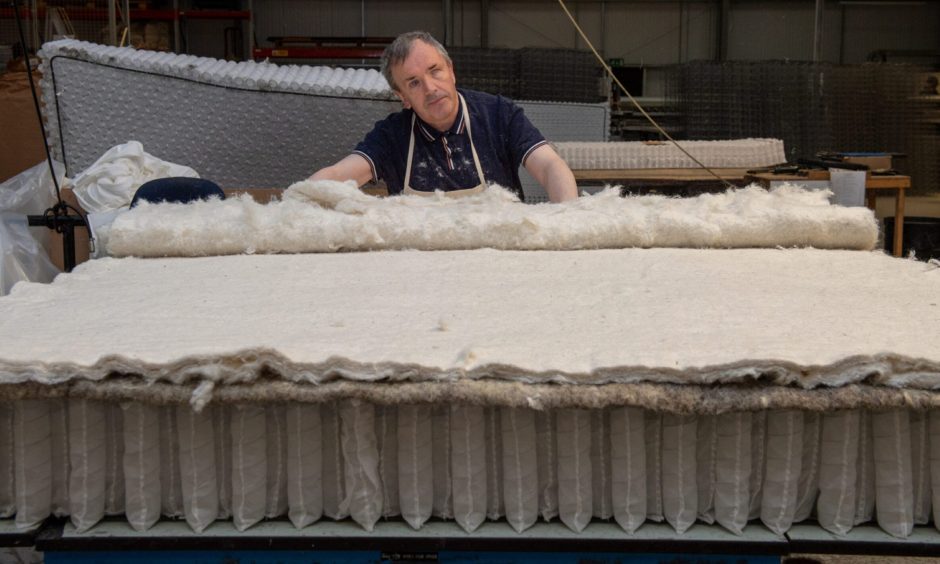
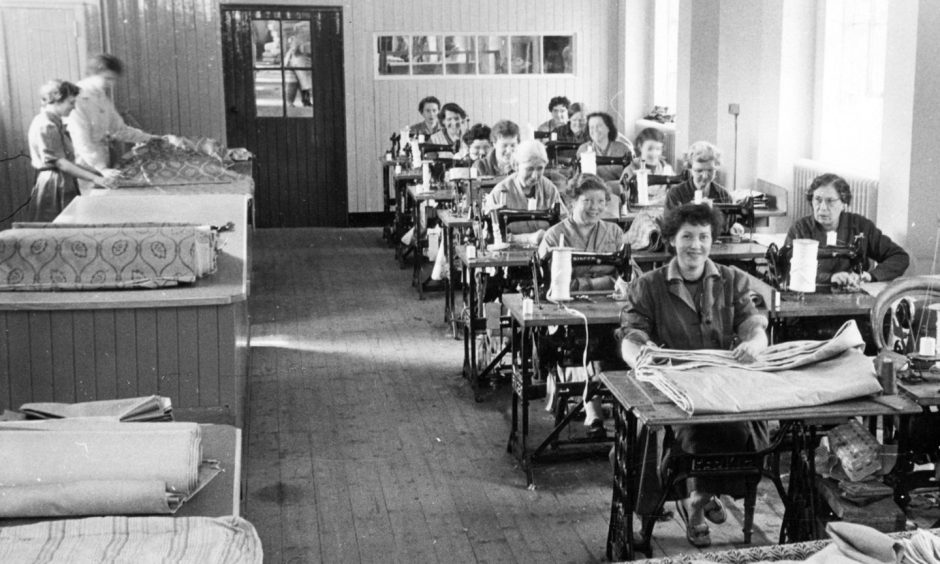
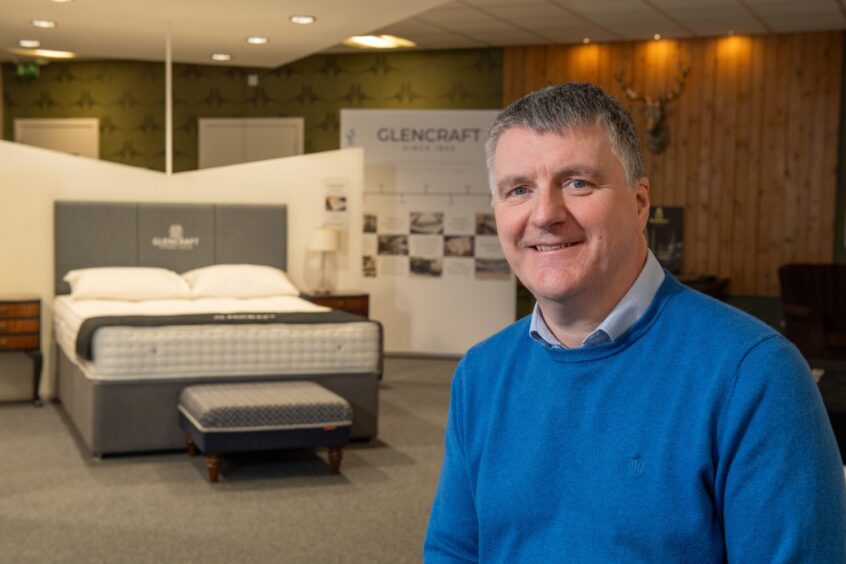
Conversation